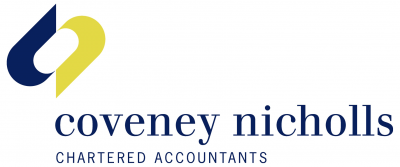Buying a small business can sometimes be simpler than starting a company from scratch. The catch may be finding the money to do it.
Luckily, there are plenty of ways to raise funds. Here’s our guide to the different financing options and what to consider before making your choice.
What are the benefits of buying a business?
Before we talk about money, you need to decide if buying a business is right for you. There are advantages to purchasing a business instead of starting your own, as long as you have got your due diligence right:
- There are some administrative tasks that come with setting up a business which you will not have to do (although other tasks associated with a purchase may take their place).
- The business might have pre-existing customers and an established reputation.
- The business will have a proven track record, which may make it easier to secure additional funding.
- You may have access to the previous owner’s contacts.
- You may be able to keep existing employees and processes, saving you money on training and recruitment.
How can I raise the money to buy a business?
Now it’s time to consider your financing options.
There are three main ways to finance the purchase of a business: bank loans, commercial mortgages and asset financing.
One may be more appropriate than the others, depending on the structure of your deal and your circumstances.
1. Bank loans
A bank loan is the most popular way to finance the purchase of a business. It should be easier to secure a loan for an existing company because the business will already have a track record.
Most banks offer two types of business loans:
- A secured loan is a loan that is backed up by your own assets. The bank has the right to seize these assets if you fail to keep up with payments. Secured loans are easier to obtain because the borrower incurs most of the risk.
- An unsecured loan is not backed up by personal assets. This is riskier for the bank, so interest rates are higher.
- You are unlikely to be approved for an unsecured loan unless you have a good credit rating and a strong business plan.
2. Commercial mortgages
A commercial mortgage can be a useful source of finance if you’re buying business premises. Lenders will typically lend 70-80% of the business’s value, but this will vary according to your circumstances.
A commercial mortgage may form part of a larger business finance package.
3. Asset financing
Equipment is not always included in the price of a business. To avoid high upfront costs, you may want to lease it from the manufacturer or buy it as part of a hire purchase agreement.
What about investment?
Of course, everything we have covered so far involves borrowing. But you might seek investment partners as an alternative, and there are a number of ways to do this.
On the plus side, you will not be taking on debt and may gain valuable knowledge, skills and resources from your investment partner.
But you will be giving up a share of the business in return, which could prove more expensive in the long run. Still, a smaller slice of a bigger pie might work out better, should investment lead to a more successful business than borrowing.
You may also need to give up some decision-making control and a share of profits, so make sure you are fully informed before seeking investment.
Are there any other options?
If you’re still struggling to raise money, there are some less conventional methods you can try. These include crowdfunding, borrowing money from family and friends and applying for a government grant.
Which option is right for me?
There is no easy answer to this question. It will depend on the type of business you want to purchase, how much money you need and how much risk you are willing to take. You may also find that a combination of these funding options is the best way to go.
Luckily, you don’t have to make this decision alone. We’ve helped businesses of all kinds to secure funding, and we’re always happy to offer guidance.
Talk to our team today to find out more.

